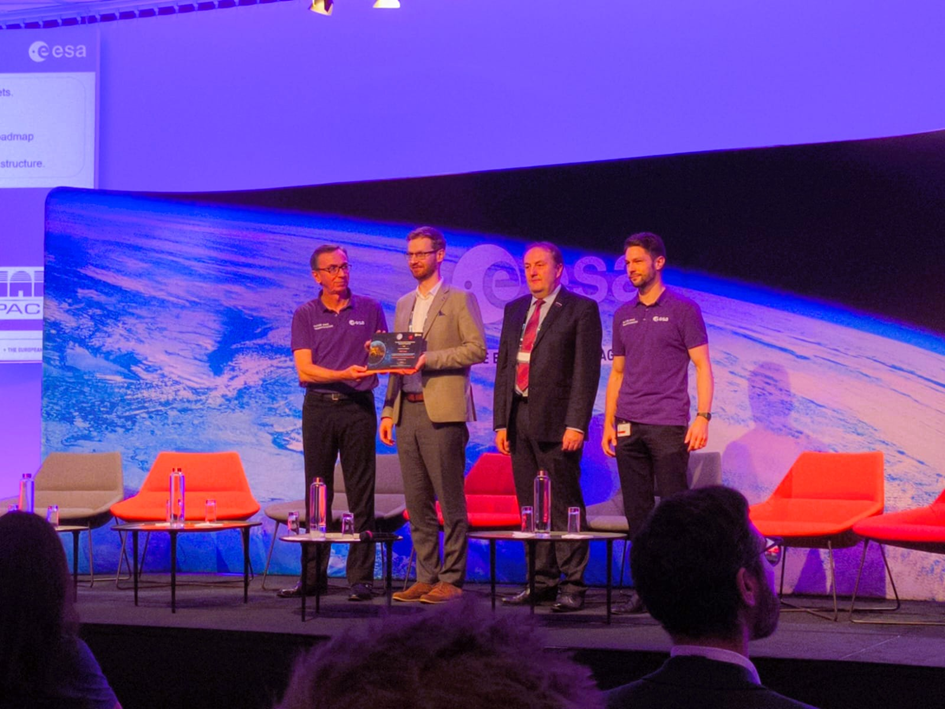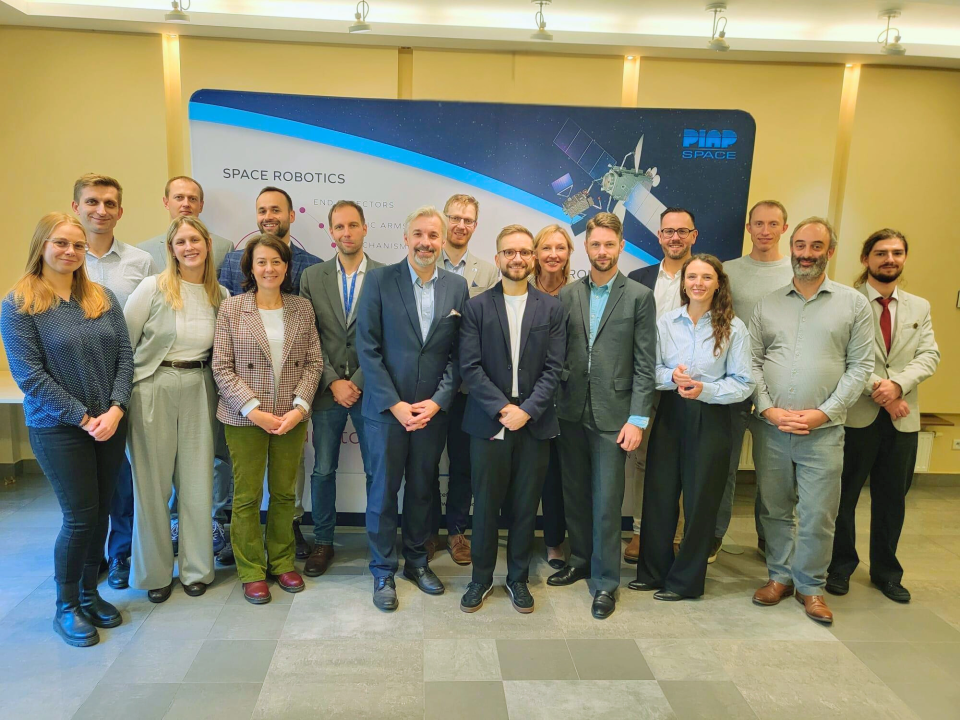The consortium behind the Polish ISTV (In-Space Transportation Vehicle) RAVEN has announced the start of phase B1, which involves the detailed definition of the first demonstration mission and the creation of a preliminary design for the vehicle. RAVEN will ultimately enable rendezvous and capture manoeuvres, as well as satellite transport and servicing operations.
The first demonstration mission will focus on validating the technologies necessary to carry out subsequent phases of approach operations such as orbit changes, phasing manoeuvres, close proximity operations and controlled deorbiting. RAVEN DEMO I, planned for 2029, will also be a comprehensive demonstration of RAVEN’s capabilities for future applications such as satellite-client inspection and satellite-target reconnaissance for security purposes. This will be an important event aimed at strengthening Poland’s position in the European multi-mission spacecraft technology sector and increasing the security and independence of national and European space assets.
From the perspective of the Polish space sector, RAVEN will be a unique opportunity to become a European leader in the field of RPO (Rendezvous and Proximity Operations) technology, space transport and logistics, orbital inspection and reconnaissance, strengthening technological sovereignty and protecting our own space assets.
‘This is a huge achievement for PIAP Space and, at the same time, a clear direction for the company’s development. Since ESA has recognised our expertise in this area, I am convinced that in the next steps we will be able to compete effectively with the largest European players – by providing technologies that truly strengthen the security and sovereignty of European infrastructure in orbit,’ – emphasises Anna Nikodym-Bilska, Business Development Director at PIAP Space.
The consortium developing the RAVEN programme consists of leading Polish space sector entities and research institutes, as well as regional partners:
Warsaw-based PIAP Space, which is the consortium leader; Creotech Instruments S.A. will develop the spacecraft platform; Łukasiewicz – Institute of Aviation – will be responsible for the spacecraft’s propulsion system; Military University of Technology (WAT) – will take care of the ground segment, i.e. communications and mission management; AROBS Polska will construct the on-board computer; GMV Polska – will prepare the spacecraft’s navigation and control system (GNC); Space scAvengers will provide inter-satellite communication, and Zaitra will holistically monitor the condition of the spacecraft.
‘RAVEN is a groundbreaking project for the Polish space sector – the first integrated step towards autonomous logistics and transport operations, as well as the protection of resources in orbit. It is also a model example of broad cooperation between institutions and companies, showing that Polish entities are capable of independently and jointly creating advanced, independent space technologies,’ says Mateusz Krawczak, Project Manager at PIAP Space.
The RAVEN project is being implemented in cooperation with a wide range of supporting institutions and companies, including: the European Space Agency, the Polish Space Agency POLSA, the Ministry of Development and Technology, and the Ministry of National Defence.
The RAVEN programme and the contract with ESA prove that Polish and regional companies are capable of delivering state-of-the-art technologies in the field of ISTV spacecraft. This is a complementary development of the robotic technologies we are already developing at PIAP Space. Our long-term ambition is to combine ISTV technology and our orbital robotics solutions in subsequent demonstration missions and to deliver ready-made solutions for defence, institutional and commercial customers,” adds Paweł Paśko, technical leader and RAVEN programme manager.
The PIAP Space team leading the mission consists of: Paweł Paśko – RAVEN Programme Manager and Technical Leader, Mateusz Krawczak – Project Manager, Katarzyna Okulska-Gawlik – Project Management Expert, Rafał Baczewski – Systems Engineer, and Przemysław Brzęczkowski – Systems Engineering Expert.

Credits: ESA

Credits: PIAP Space

